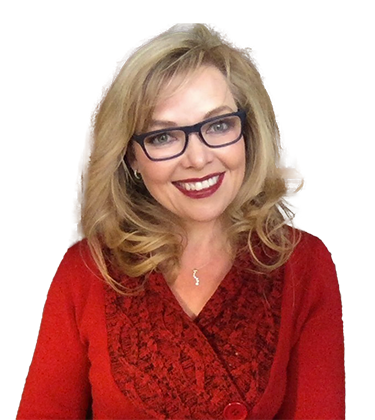I grew up in a street that was very much intergenerational.
Our next-door neighbors on one side were elderly, and on the other side were slightly younger than my parents, and they had children our age. Opposite was Mrs Williamson (who always dressed up even though she lived alone) and her toy pom dog (who drank tea from a Royal Doulton cup). One house down lived another couple with children. (We were in different schools because they were English and I was Afrikaans, but we loved playing together during school holidays.)
Our relationship with the older couple was always very comfortable and warm. We were "sugar neighbors" – the kind who would lend each other a cup of sugar. And we also had keys to one another's houses. Believe me, I would have been locked out of the house after school very often if not! I always found their house to be a comforting and safe place.
When I started working, I was in the banking industry in a highly intergenerational department.
On one end of the spectrum was Mrs S (as we called her) who was close to retiring. On the other end was none other than yours truly – at the tender age of 21. Thinking back now, I know I didn't realize or appreciate how fortunate I was to have colleagues of all ages.
However, a few years later I started working at a company where only two people (the CEO and the financial director) were over 40. The rest of us were younger, and most were below 30. There was never a lack of creativity and ideas (or mischief). But what we did lack was a sense of calm, and the wisdom that comes as a result of life lessons. As well as the ability to ask penetrative questions based on wide-ranging experience.
While writing this blog, I asked my bonus son (my stepson) how he thinks intergenerational workplaces benefit team members.
He works for a young company that provides technical and IT services. The company was founded by a person who was 50 at the time. All the technicians are in their twenties, the accounting and admin staff are in their thirties and forties. However, the one position that George (the founder) struggled to fill, was that of a technical and maintenance manager. He searched high and low, but couldn't find a person that he thought was a good fit.
One day, George started talking with a stranger in a store. The other man, Jordy, was a retiree who had been out of the workplace for 10 years, but he'd worked in power plants and other technical environments all his life. George had a gut feeling that Jordy was the right person for the position. So he asked him if he'd consider returning to work. As it turned out, Jordy hated not working. It made him feel unwanted and discarded. He was yearning to contribute to society by sharing his knowledge and experience.
Jordy's knowledge was immense. He knew exactly how to troubleshoot technical issues that would have kept the younger members of the team perplexed for days. But, he was still quite "old school" in his approach and often offended or annoyed co-workers because he spoke his mind openly, and didn't really take their boundaries into consideration. Political correctness wasn't part of his vocabulary!
So, while Jordy was imparting valuable knowledge to his team members, they taught him how to navigate the modern workplace.
"It didn't end there," our son said. "Jordy also taught us to be patient with him in a different way than he had to be patient with us. Both sides learned lessons from the interactions with one another – and it taught us all that there's always more to consider than meets the eye."
You might have seen from our social media channels that we've been busy celebrating Global Intergenerational Week over the past few days, during which we got involved in conversations about intergenerational working and the benefits of age diversity.
When we talk about the various generations, there are three key things that tend to inform the main differences in the way each thinks:
Given my formative years and background, I've always been appreciative of intergenerational working because I believe people of all ages add value in different ways. I've also learned these lessons:
If you want to learn more about intergenerational working, check out the following selection of Mind Tools resources (note that you will need to be a Mind Tools Club or Corporate member to see all of the resources in full):
How to Thrive in a Multi-Generational Workplace
Stage (Not Age)

About the Author
Yolandé uses her 20+ years of experience as a therapist, coach, facilitator, and business school lecturer to help people develop their careers and live up to their potential. She thrives on facilitating conversations designed to build bridges between people by using creative questioning and thinking techniques.
You might mistake her for a city girl, but Yolandé is an honorary game ranger, loves birding, archaeology, and spending time in the African bush. Early morning runs with her rottweiler and reading (a lot) are her favorite activities. And, her neighbors will tell you that she loves the kitchen and it gives her joy to "bake" people happy.

Being able to apologize sincerely, without getting defensive or huffy, is a sign of maturity and strength. It shows that you're not too big or important to be vulnerable, too.
One of the few spaces that can have real impact in improving LGBTQ+ equality is the workplace. But it takes effort; and it's not only up to our LGBTQ+ colleagues. It's up to the rest of us, too.
This is the third of a three-part series called Your Career. Recap on Part One (Resume Prep & Job Search), here; and Part 2 (Interviewing), here. Getting a new job can be exciting, confidence-building and a little bit nerve-wracking. It means you performed well at your interview and showed your potential new employer that you […]